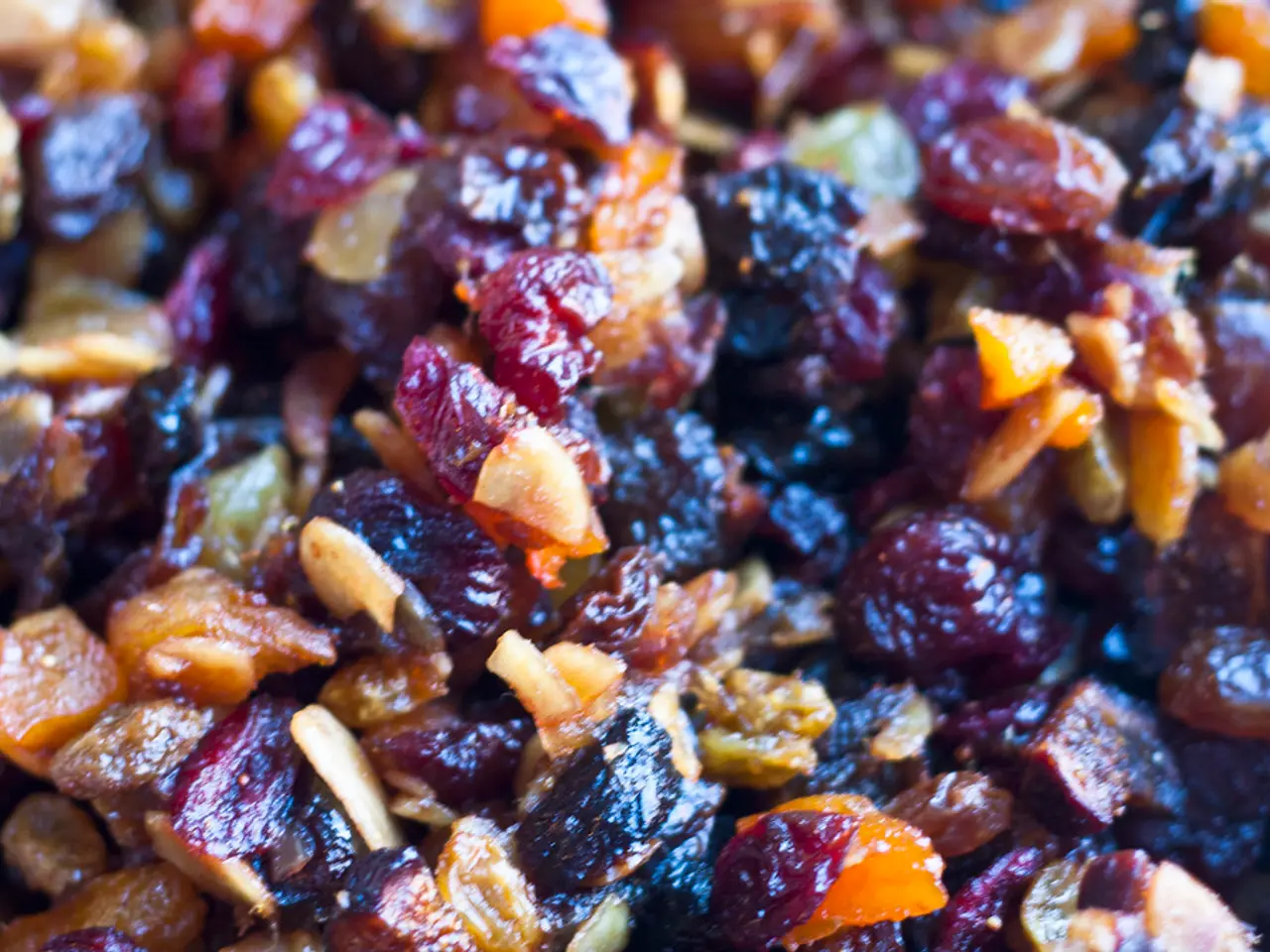Unadulterated, Raw Fats and Oils in Their Natural State
In the realm of cooking, traditional fats play a crucial role in providing not only flavour but also essential nutrients. Here's a rundown of some popular choices and their nutritional benefits.
Grass-fed butter and ghee stand out among the traditional fats due to their rich content of fat-soluble vitamins A, D, E, and K2, conjugated linoleic acid (CLA), and butyrate. Ghee, being lactose-free, is a suitable option for those with dairy sensitivities. Both grass-fed butter and ghee support hormone production and offer cholesterol, which is beneficial for overall health.
Animal fats, such as lard, tallow, and duck fat, are traditional, heat-stable fats that are rich in saturated fat and solid at room temperature. They excel in high-temperature cooking, making them excellent choices for baking, braising, and light sautéing.
Coconut oil, favoured for its stability during heating, is another popular choice due to its high saturated fat content and medium-chain triglycerides (MCTs). MCTs serve as quick energy sources, making coconut oil an ideal choice for a variety of dishes.
Extra-virgin olive oil, particularly, is rich in monounsaturated fats like oleic acid and antioxidants such as vitamin E. It reduces inflammation and is best used at low to medium heat to preserve its nutrients and avoid oxidation.
Beyond providing fats and calories, these traditional fats offer a complex nutritional profile superior to many industrial seed and vegetable oils. The key to optimal nourishment is choosing these fats from non-industrialized sources, such as grass-fed, pasture-raised animals for butter, ghee, and animal fats, and cold-pressed, unrefined oils like extra-virgin olive oil without hexane extraction, hydrogenation, or genetic modification.
In addition to these traditional fats, supplementary sources like cod liver oil can boost immunity and support cognitive and reproductive health by providing vitamins A and D. However, it's essential to ensure that cod liver oil is purchased with its naturally occurring vitamins still intact.
When shopping for these traditional fats, the author suggests looking for grass-fed butter, ghee, clarified butter, unrefined extra virgin coconut oil, pastured lard, and bacon fat from well-stocked grocery stores or health food stores, or online. Raw butter can be made at home from fresh raw cream, but it's difficult to find in the United States. Unrefined extra virgin olive oil can be challenging to find, but it's rich in phytonutrients, antioxidants, and vitamin E. Cold-pressed nut and seed oils, such as walnut, pumpkin seed, sesame seed, and hazelnut oils, are high in omega-6 fatty acids and are best used minimally as a finishing oil.
Lard, particularly if it has been rendered from the fat of pasture-raised hogs, is a potently rich source of vitamin D, second only to cod liver oil. Pasture-raised lard is not widely available and is best obtained from local ranchers or rendered at home.
In conclusion, traditional fats offer a wealth of benefits beyond just providing fat and calories. By choosing these fats from traditional, minimally processed sources, we can support our health and enhance the flavour of our dishes.
- Grass-fed butter and ghee, with their rich nutrient profiles, are suitable for individuals with dairy sensitivities, as ghee is lactose-free.
- Animal fats like lard, tallow, and duck fat, which are heat-stable and solid at room temperature, are excellent choices for high-temperature cooking methods like baking and braising.
- Coconut oil, favored for its stability during heating and high saturated fat content, is an ideal choice for various dishes due to its MCTs, which serve as quick energy sources.
- Extra-virgin olive oil, rich in monounsaturated fats and antioxidants, is best used at low to medium heat to preserve its nutrients and avoid oxidation.
- To ensure optimal nourishment, choosing traditional fats from non-industrialized sources like grass-fed, pasture-raised animals and cold-pressed, unrefined oils is crucial.
- Supplementary sources like cod liver oil can boost immunity and support cognitive and reproductive health, but it's essential to ensure that the oil's naturally occurring vitamins are still intact.




